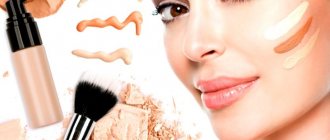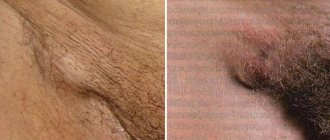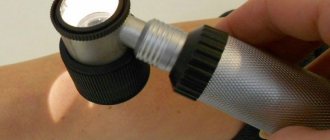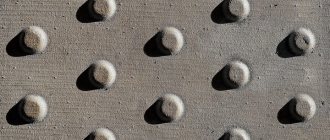Sensitive Skin Types
Causes of skin sensitivity:
- hypersensitivity of the skin, which is characterized by a sudden onset, after which the sensitivity continues for a certain time and also suddenly disappears. This skin condition is provoked by the reaction that the human body experiences after suffering serious illnesses, taking medications and neuropsychic injuries;
- the appearance of sensitive skin against the background of abnormalities of internal organs (most often the intestines and stomach), allergic, skin, infectious or endocrine diseases, as well as damage to the immune system;
- the use of low-quality cosmetics or incorrectly selected cosmetics, as well as inappropriate care can cause skin hypersensitivity;
- Sensitive skin depends on its congenital characteristics, such as dryness, weakness, thinness and lack of protective pigmentation. Almost all external irritants (water, wind, dust, heat) can cause a reaction of this skin type, which requires detailed care with protective and nourishing creams.
In the case of the last two situations, it is enough to provide the skin with careful care, but the first two options require eliminating the causes of skin hypersensitivity.
Signs
- painful pallor of the face;
- facial skin instantly reacts to touch;
- habitual washing causes a feeling of tightness;
- with sudden changes in ambient temperature, local redness of certain areas of the facial skin occurs;
- in the solarium and on the beach you use sunscreen with an SPF of at least 50 and still manage to get sunburned.
Let us add that in men, signs of sensitive facial skin become noticeable when shaving: a small red rash appears, red spots appear, and an unpleasant tingling sensation occurs. In addition, if you shave inaccurately, there is a risk of cuts, through which the product before (after) shaving can penetrate into the wound and cause irritation.
Internal skin defense mechanisms
According to its functions, the upper layer of the epidermis is the main barrier to the entry of harmful components. Hypersensitivity is caused by thinning of the stratum corneum of the skin. As a result, this leads to a decrease in the protective function, which provokes the unhindered penetration of various exogenous irritants into the skin. Also, the protective function of the skin is performed by immune cells of the epidermis and the stable functioning of the sebaceous and sweat glands.
Skin sensitivity is not always provoked by congenital features of its structure. Trying to improve their appearance, people without noticing it expose their skin to various influences. Creams, chemical peels and masks with acids, exfoliating scrubs and experiments in the selection of cosmetics have a detrimental effect on the condition of the epidermis and thin it. As a result, instead of the expected result, irritation and redness form on the skin. The most susceptible areas will be the areas around the eyes and nasolabial triangle, which have a low level of lipid barrier and physiologically thin skin structure.
The following mechanisms of internal skin protection are distinguished:
- Skin barrier. The stratum corneum of the epidermis retains the right amount of moisture, thereby preventing the skin from drying out. Due to dry skin, the barrier function decreases, which predisposes to sensitivity. The skin is exposed to exogenous irritants (trauma, infections, chemicals) and responds to them with hypersensitivity;
- Sebum is a protective mechanism that is secreted by the sebaceous glands. The lipid film that forms on the surface of the epidermis softens and protects the skin from infections and damage. Insufficient sebum leads to dry skin and a decrease in the protective barrier;
- The acid level of the skin, which is maintained by the stable functioning of the sweat glands. In addition, sweat neutralizes chemical, microbial and mechanical skin contaminants. Violation of the acid-base balance leads to loosening of the skin and increased skin sensitivity.
Opportunities for professional cosmetology care
Sensitive skin problems can be effectively solved with modern hardware and injection cosmetology techniques.
People with hyperreactive skin in the acute phase are often prescribed microcurrent therapy. Sessions of this procedure normalize the condition of the skin, eliminate signs of inflammation, have a strengthening effect on blood vessels, and improve the general condition and appearance of the skin. As an auxiliary treatment, a doctor may prescribe a course of ozone therapy. It provides an anti-inflammatory effect and has an immunostimulating effect.
During the period of weakening of the manifestations of hypersensitivity, gentle superficial peels are appropriate: almond, glycolic, retinoic. The effectiveness and safety of the procedure in this case depends on the professionalism of the cosmetologist, who must conduct a preliminary test for sensitivity and be well aware of the individual characteristics of the patient.
Biorevitalization has proven itself to be effective in solving such problems. Native hyaluronic acid, the main active component of the administered drug, has a complex antioxidant and anti-inflammatory effect, strengthens blood vessels, stimulates microcirculation processes, increases skin tone and improves its appearance.
Causes of increased skin sensitivity
There are endogenous and exogenous factors that affect skin sensitivity.
Endogenous factors include:
- skin type - 60% of women who consider their skin reactive have 40% dry skin, and 25% have oily or normal skin;
- phototype 1 and 2 degrees with increased sensitivity, pigmented skin is considered less prone to irritation than light skin;
- age, since children have more sensitive skin than adults;
- become, since women suffer most from increased sensitivity of the epidermis;
- neurological factor;
- menstrual cycle and hormonal levels.
Exogenous causes include:
- environment - cold, polluted air, temperature changes, solar radiation and heat;
- lifestyle - alcohol, tobacco, stress, emotions, stimulants and spicy foods;
- use of cosmetics;
- professional activity - contact with detergents, long and frequent exposure to the sun.
One of the important external factors in increasing skin sensitivity will be substances that are used for cosmetic procedures or are included in the structure of cosmetic products. These include retinoids, which are used in dermacosmetology to correct skin conditions and treat dermatoses. Side effects of using this substance will be peeling, redness and dryness of the skin.
Most components of cosmetics of synthetic (fragrances, preservatives, emulsifiers) and biological (calendula extract, rosemary, sandalwood oil) origin cause contact dermatitis and allergization of the skin, which also leads to skin hypersensitivity.
Skin sensitivity is also considered the result of an allergic mechanism, namely, individual or complex influences of factors lead to hypersensitivity.
Why is this happening?
Human skin is a protective barrier that is affected by many factors. The following factors may influence the appearance of sensitivity:
- Age. Increased sensitivity is noted in people from 18 to 50 years old, then it decreases.
- Impacts of the external environment. The sun, wind, temperature fluctuations and even low ionizing radiation affect the protective properties of the skin.
- Food triggers. What you eat will show up on your face sooner or later. And if you abuse alcohol, coffee or spices, one day this will lead to increased vascular reactivity.
- Stress. Under the influence of stress, the neuroreceptor apparatus of the skin malfunctions.
- Changes in hormonal levels. During certain periods (pregnancy, menopause, etc.), skin sensitivity may become aggravated.
- Dermatitis or rosacea, other skin pathologies.
- Improper skin care is also one of the most common causes of sensitivity.
Sensitive skin care
Care for sensitive skin consists of the following procedures:
- Cleansing. In the morning you need to wash your face with warm spring or mineral water, and in the evening use soft cleansing milk, which will remove makeup and dirt. The skin also needs to be wiped with a tonic, which makes it possible to tone and refresh the skin;
- Hydration. In the morning, you need to apply a day cream to the skin, which contains weakening fats and nutrients, and also has protection against ultraviolet radiation. It is best if the cream is created with mineral elements based on thermal waters;
- Night care. Before going to bed, a layer of cream is applied to the skin, which has regenerating properties and certain elements that guarantee reliable protection and moisture accumulation, while activating oxygen exchange in cells;
- Decorative cosmetics must be tested for hypoallergenicity;
- Face masks. For those with sensitive skin, it is best to give preference to easily washable masks that are endowed with moisturizing and nourishing properties. It is not recommended to apply the mask to people with incompatibility with any of its components.
Sensitive skin needs constant hydration and protection, which can be provided by cosmetic products that are optimally suited to your skin type. It is necessary to limit the use of masks, mesotherapy, peeling and other skin-damaging procedures, as well as learn how to use and choose decorative cosmetics correctly.
How are skin irritations treated?
If a rash appears on your skin, consult a dermatologist. This will help you identify the product or ingredient that is causing the irritation. To rule out the possibility of an allergy, you may need to take a skin test. During the test, allergy samples are placed on the back for 72 hours. After this time, the doctor evaluates the results, and if you are allergic to any substance, the doctor will tell you how to avoid it in the future.
Remember that the rash may be accompanied by skin infection. Such infections are dangerous and can lead to serious illness. They are treated with antibiotics, which are selected individually.
When should you see a doctor?
In most cases, diseases that cause numbness are not life-threatening. However, some conditions require immediate consultation with a doctor, an accurate diagnosis and appropriate treatment.
It is urgent to see a specialist if numbness is accompanied by:
- limited mobility of fingers, arms or legs;
- sudden weakness, dizziness;
- urinary and fecal incontinence;
- speech disorders and impaired ability to move.
It is also unacceptable to postpone a visit to the doctor if numbness occurs after an injury in the back, neck or head.
Diagnostics
Since there are no external manifestations, it is impossible to independently determine the cause of the pathology, and without this it is impossible to use folk remedies or medications. In such a situation, self-medication can provoke even greater health problems, so you cannot do without qualified help. It is best to contact a local physician, who, after an initial examination and history taking, will refer you to a specialist.
A thorough examination is required to identify the cause of the pain.
Most often, this problem is dealt with by a neurologist. If the damage to the nerve endings is caused by diseases of the spine, you will additionally need to consult an orthopedist or vertebrologist. To identify pathology, the patient is prescribed magnetic resonance or computed tomography, radiographic examination, and electromyography. A general and biochemical blood test is also carried out, which makes it possible to determine the presence of infectious pathogens, sugar levels, and determine the body’s need for microelements and vitamins. Based on the results of a complete examination, the doctor selects individual therapy for the patient.









